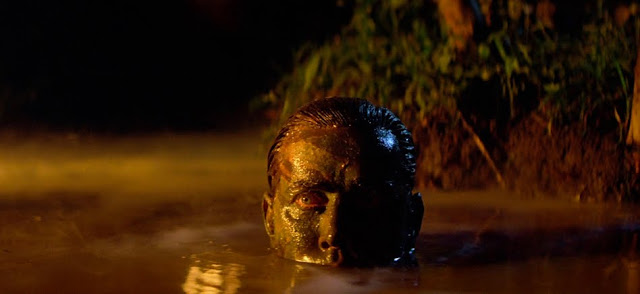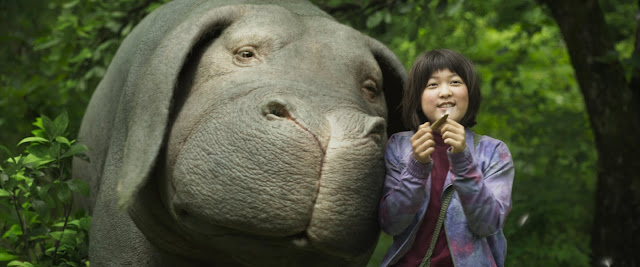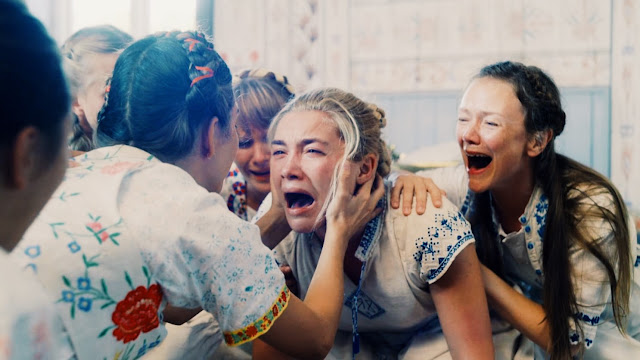Apocalypse Now: The Final Cut

"A good script, we haven't got. A good director, we haven't got. A good picture, we haven't got. What've we got? We've got heart!"
Those were the words of Francis Ford Coppola on the cutting room floor. Motivating his editing team through the whimsy of show tunes to salvage a watchable cut of Apocalypse Now. A film that was doomed to fail from every which way it turned had it not been for the persistence of an outrageously ambitious director who already had two Best Picture winners under his belt. Coppola recounted this information and so much more to director Steven Soderbergh and a spellbound Tribeca Film Festival audience of which I had the honor of being part of Sunday night. We had just finished watching the premiere of a brand-new cut of Apocalypse Now, which may be Coppola's last. Filmmakers with any experience with the process understand that the only thing more grueling than shooting a movie, is editing one. As iconic and culturally significant as Apocalypse Now has become, Coppola has been spending the last 40 years trying to find a version of it to his liking. He hasn't found one until now. Sometime in select theaters this year, you will see Apocalypse Now as you've never seen it before. In crystal clear 4K resolution, rending the original 35 mm film into images you'd never believe were captured in the mid 1970's. Along with an audio restoration that will blow your hair back with every buzz, bang and pow of the infamous Ride of the Valkyries scene. You will be as much in awe of it as I was, but it's up to you to judge whether or not Coppola has achieved his best cut of Apocalypse yet. For me, this landed somewhere in the middle. Not as bloated as Redux, but not as tight and precise as the original theatrical cut. To say nothing of the alleged 5-hour, unreleased work-print that was only screened once at the 1979 Cannes Film Festival, but I gather that is more of an endurance test than an actual film.
As Coppola described later in the evening, he knew that audiences would be surprised at how much of a tonal departure Apocalypse is to the classical, operatic genius that made Godfather's I and II so beloved. Even he thinks this movie is on the weird side. But that was the point. The film takes place during the Vietnam War, which as Coppola describes it as "A west-coast kind of war. Lots of sex, drugs and rock n'roll.". But that merely scratches the surface of Vietnam, and the time of which it occurred. Vietnam wasn't a righteous war, it was a violent, ugly one, that coincided with a social upheaval in the mainland of the Untied States that nearly irreversibly altered the nature of our country forever. This sense of agony, fear and hopelessness helps shape the unsettling acid trip that Apocalypse Now takes us in. It gets us there from the first minute. The buzzing of helicopters. We hear "The End by The Doors softly beginning to play. A massive napalm explosion erupts in the jungle. We're right in it, baby.
It's the story of Captain Benjamin Willard played by Martin Sheen. A man just like every other in Vietnam. He never wanted to fight this war, but he had to. His mission, to track down and kill Colonel William E. Kurtz (Marlon Brando), a deserter who entrapped himself deep within the jungles of Cambodia, leading a cult of native tribesmen who worship him as a God. He is designated in a US Navy PBR among other ragtag service members who are unsure of why they are there or what they are even fighting for. But not before transferring from a particular tour of duty with Lieutenant Colonel Bill Kilgore (Robert Duvall), a killing machine with a penchant for surfing. He doesn't mind clearing out entire villages of Vietnamese, but damn everyone if he can't catch the wave while doing it. As Willard goes deeper into the jungle, the darker his journey becomes. The carnage around him grows, and so does his tolerance to it. The great irony of Apocalypse Now is how a reluctant solider like Willard grows to enjoy a mission he never wanted to be in. One famous line says it all. "They were gonna make me a major for this, I wasn't even in their fuckin army anymore". It reads like a parable from Nietzsche.
So what did I think of it's final cut? A great film inside of a mixed bag of a cut. The one thing i wish this cut omitted is the French Plantation scene. Long, wordy, annoying and adds virtually nothing to the storyline film. It was introduced in Redux, and Coppola kept it in. Other than that criticism alone, I recommend you see this film, especially if you haven't, in a theater this summer. It's a period piece and a war movie unlike any other.





Comments
Post a Comment